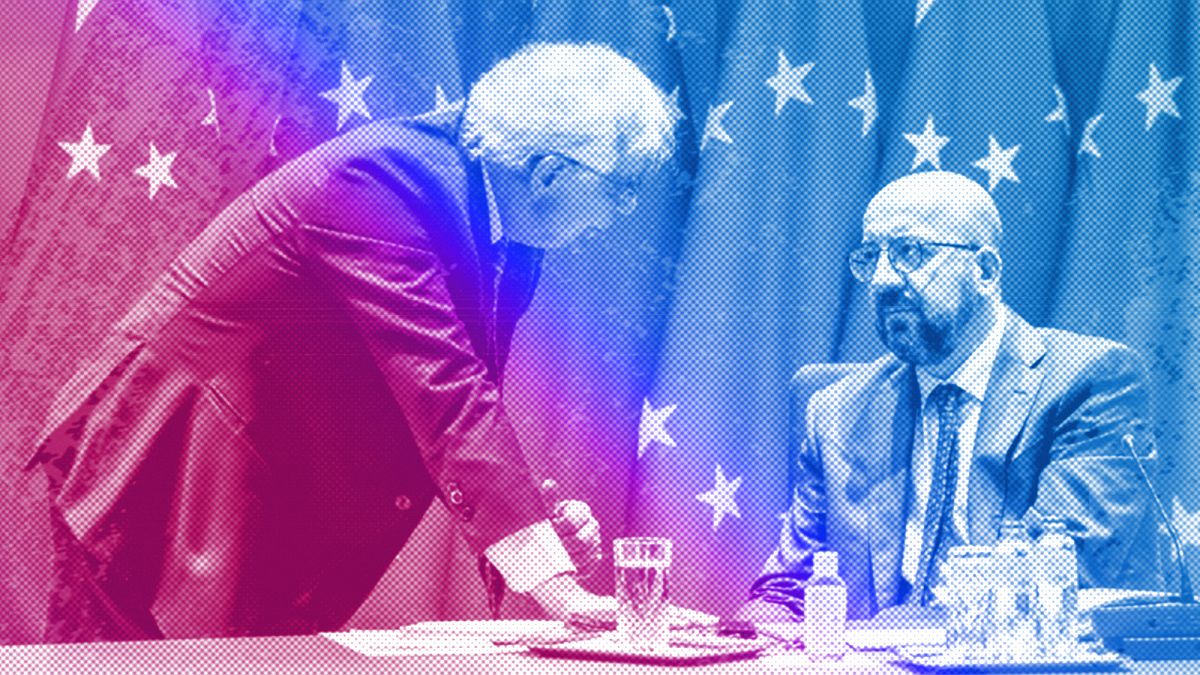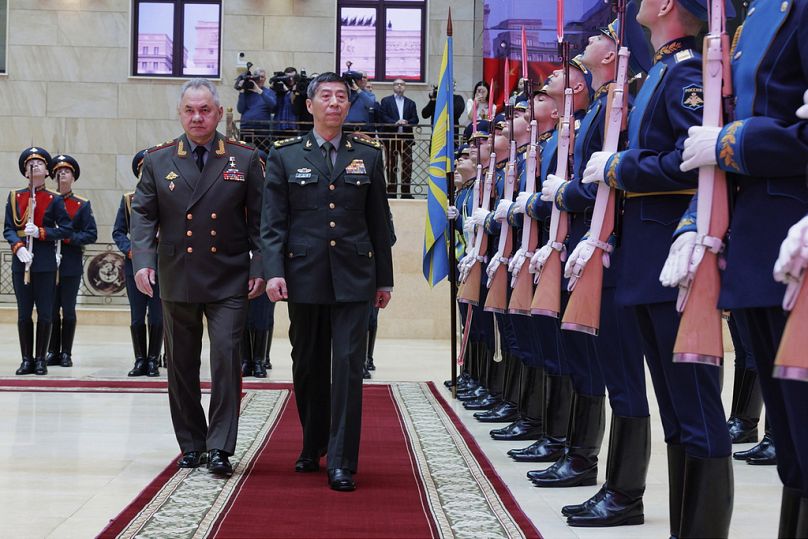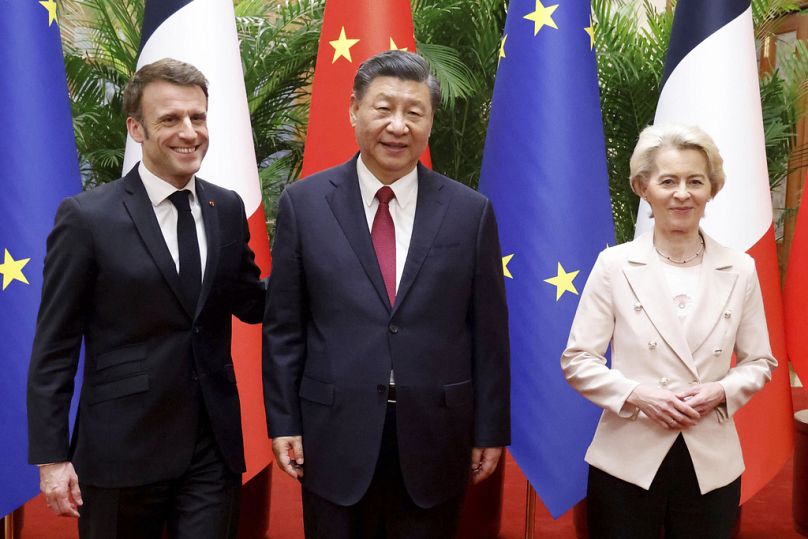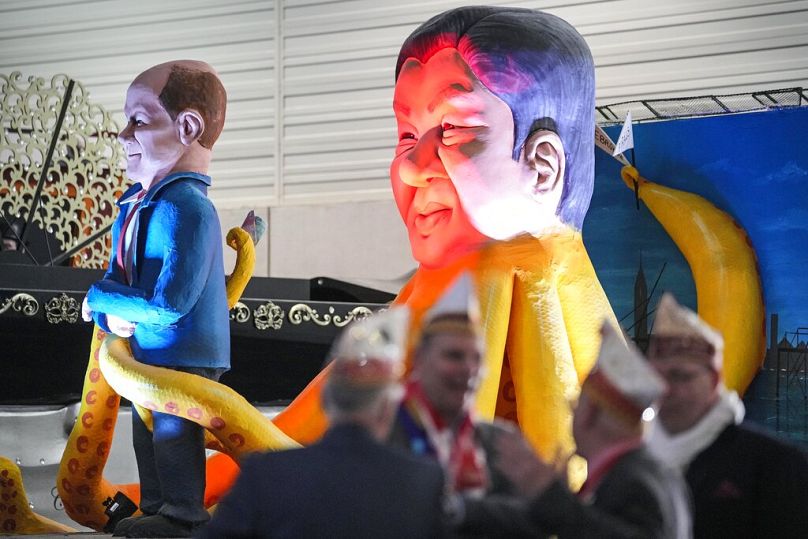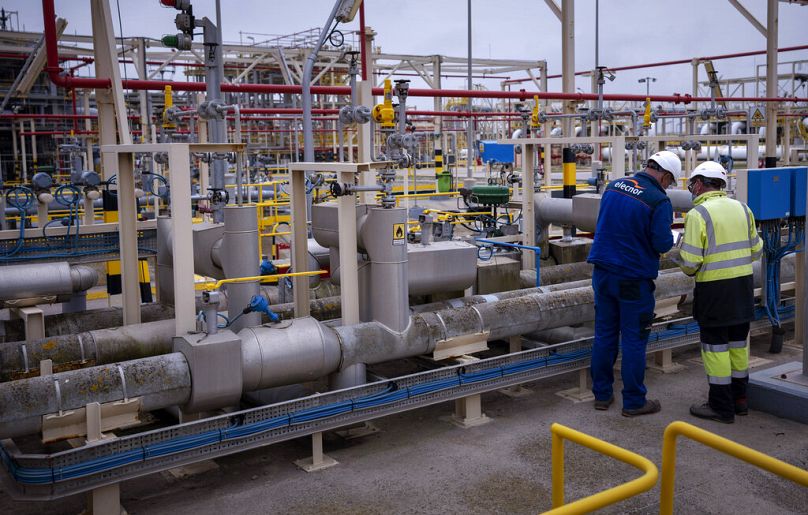Beijing has deployed a variety of tactics in the past to undermine EU unity on China. These red flags should compel EU leaders to approach it with a healthy dose of realism while minding past lessons from dealing with the East, especially Russia, Soňa Muzikárová writes.
A recent visit by China’s new Foreign Minister Qin Gang to France, Germany, and Norway indicates Beijing’s intention to rebuild relations with the European Union outside of the orbit of Russia’s invasion of Ukraine and away from the growing tensions with Washington.
Sino-European relations suffered the consequences of not just the ever-increasing US-China geopolitical rivalry.
Brussels has shared Washington’s concerns over an array of Chinese policies, from human rights abuses, unfair trade practices, data and privacy, to the handling of the coronavirus pandemic and military threats against Taiwan.
Both sides of the Atlantic additionally seek to break out of dependence on China and safeguard their national security interests when it comes to supply chains of critical materials.
Finally, China’s failure to condemn the Russian invasion of Ukraine is viewed as an existential threat to European security and further strained the bilateral relationship once centred around economics.
China's speculative neutrality doesn't sit well with Europe
Perhaps nowhere was the disillusionment more palpable than in the former Soviet space.
This is because Europe’s east harbours a living memory of Russian oppression, and the invasion of its neighbour brings it back to life.
It is also an existential security threat to the region, fundamentally incompatible with the Chinese speculative "neutral" posture.
Beijing's ambassador to France Lu Shaye's remarks that post-Soviet countries did not enjoy an "effective status under international law" since there was "no international agreement confirming their status as sovereign nations" was the final nail in the coffin.
The statement was since retracted, but the damage done as a result of these revisionist statements is beyond repair.
Beijing is now pushing further westward
Eastern Europe was once viewed as a promising region for expanded and pragmatic cooperation with China and even hoped to be China’s "gateway" to the continent.
This is why Beijing pursued several economic and diplomatic initiatives in the region — notably the massive, infrastructure-focused Belt and Road Initiative and the "17+1" format bound to increase Chinese investment.
But they have largely failed to generate a meaningful wave of Chinese investment in the region, squandering the opportunity to diversify mostly westbound trade and investment.
China now seeks an autonomous and "comprehensive" partnership with Europe’s Western capitals. In Paris, for example, Qin pushed for developing a stronger economic relationship with Europe.
EU-China trade surged in the past two years due to Europe’s increased demand for Chinese products during the pandemic, and China is the EU’s number two trading partner, accounting for 15.3% of the bloc's total trade.
Even European Commission President Ursula von der Leyen, who has been hawkish on China in the past, has dismissed the notion of decoupling Europe from China’s economy completely.
This is because Europe depends on China for strategic raw materials, chips, and components, including those vital for the bloc to progress on its ambitious climate agenda.
Beijing's 'divide and conquer' strategy is not new
But there are red flags why Europe should exercise caution when dealing with China.
Amid increasing hostility with Washington, Beijing would like to use Europe’s fragmented policy on China to weaken the bloc and drive a wedge between the transatlantic allies.
During recent diplomatic exchanges, Chinese leaders have repeated the adage that the EU should avoid "falling further under US influence", not too far-fetched from President Emmanuel Macron’s April remarks in Beijing that Europe should avoid meddling with conflicts "that are not [its] own".
Beijing’s choice of European capitals – Berlin, Paris, and Oslo – seems to be geared towards those that are willing to pursue a more autonomous China policy.
Like Macron, German Chancellor Olaf Scholz is also known for being lenient on China, as evidenced by his November trip, when he pushed for lucrative commercial relations while failing to push Beijing to the negotiation table over Ukraine.
China’s "divide and conquer" strategy is not new. Beijing has deployed a variety of tactics in the past to undermine EU unity on China-related issues, from not just courting specific European regions but also threatening to ban purchases of European products ranging from wine to aircraft.
These red flags should compel EU leaders to approach China with a healthy dose of realism while minding past lessons from dealing with the East, especially Russia.
Key takeaways pertain to the limits of diplomacy, the risks of "economic pragmatism", and the narratives the EU tells itself about what is and isn’t possible without China.
Brussels should be careful with granting autocrats access to its market
First, maintaining open diplomatic and political communication channels is always a good idea. But it should be seen at face value as unlikely to yield a breakthrough on critical issues, such as a ceasefire in Ukraine or discouraging Beijing from cooperating with Russia.
The gap between China’s official statements and actions taken remains immense, as shown by Beijing’s declared "neutrality" on the one hand and reports of providing weapons to Russia or echoing the Kremlin’s false narratives at home about the West pushing Russia into confrontation or "denazifying Ukraine" on the other.
Second, last winter’s natural gas crisis in Europe should serve as a living reminder that granting autocracies access to strategic EU markets under the veil of pragmatism is a dangerous gamble.
Despite repeated warnings of allies, this "economic pragmatism" blew up in Berlin's face when Russia's Vladimir Putin used the one-sided natural gas dependency as a major geostrategic instrument against Europe.
It may seem today as though the bloc dodged the bullet, but in reality, an energy calamity was on the other side of colder winter weather and more vibrant Chinese demand.
Finally, with respect to Europe’s dependence on China for strategic raw materials, chips, and imports necessary for climate action, Europe’s beliefs about what is and isn’t possible without China will largely shape the bloc’s economic fate.
Bolstering the economy while strengthening security is the answer
If the bloc’s leaders, like the Dutch Foreign Trade and Development Minister Liesje Schreinemacher, convince themselves that Europe's energy transition isn’t possible without China, then it won’t be.
As seen in the recent past with Russia, such limiting framing of the issue will, without doubt, detract the bloc from prioritising aggressive diversification action – from supply chains to trade links – the only path forward that safeguards the continent’s long-term economic interests while also bolstering security.
Europe's very existence and future prosperity hinge upon this, and an economically more resilient EU may also lead to a more balanced relationship with China.
Soňa Muzikárová is a political economist focused on the region of Central and Eastern Europe. She serves as a senior economic advisor to the secretary of state at the Foreign Affairs Ministry of Slovakia and is also a Research Fellow at the Atlantic Council. She has previously held senior roles at Globsec, OECD, and the European Central Bank.
At Euronews, we believe all views matter. Contact us at view@euronews.com to send pitches or submissions and be part of the conversation.
